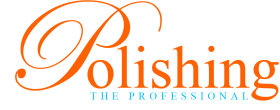
You just graduated high school or college, and now you are on the job hunt. Scoring an interview can be challenging, but do not let that discourage you. Informational interviews are a networking technique that allows you to connect with people and companies of interest. Rather than dealing with the stress that comes with a typical job interview, the reversed roles are in your favor.
The Benefits of Informational Interviews
The primary purpose of an informational interview is to gather information. Remember, it is not a job interview. You may be wondering, “what is the point of an informational interview then?” Well, here are a few of the benefits.You learn about new career paths.
1. You learn about new career paths
2. You hear about the realities of working in a particular field or industry.
3. You receive insider tips on preparing for an interview and successfully landing a job for a position that interests you.
4. You expand your professional contacts when you network, which may lead you to job opportunities in the future.
5. If the informational interview goes well, the person you interviewed may provide additional referrals to expand your network further or even land a job.
Be Prepared!
It is imperative to prepare for the informational interview. First and foremost, do your initial research on the person, their position, and the company. Once you have done your research, write a list of questions based on what you learned about them with a quick google search. Although it is an informal interview where the roles are reversed, be sure to have a list of questions tailored for that person. This strategy will show your genuine interest in the interviewee and the company. Here are some generic questions you can tailor to fit the person’s role/company.
1. Can you tell me a bit about your career path and what led you to the role you are in today?
2. What were some of your early roles in the field? How did you begin your career?
3. What did you learn in your previous role that helps you today?
4. What does a typical workday look like for you?
5. What are some of your primary responsibilities?
6. What are some big projects you are working on now or have finished up in the last few months?
7. What do you enjoy most about the work you do? What are you most excited about right now?
8. What aspects of work do you find to be the most rewarding?
9. What do you enjoy least? Or is there something that surprised you about the role when you first started?
10. What skills do you think are most important for someone interested in a job like yours?
11. What are some of the biggest challenges you face day-to-day?
12. What do you wish you had known when you were starting in this career/field?
13. How do most people get into this field? What are typical entry-level jobs?
14. What are the most effective strategies for seeking a position in this field?
15. What type of work samples or portfolio should I prepare as I try to move into this career?
Post-Interview
After completing the interview, state any follow-up actions you will take based on their recommendations and tips. ALWAYS thank them for their time and information, and send a thank-you email after the interview.
It is essential to reach out to your professional contacts every few months to follow up and see how they are doing. Staying in touch will keep you on their mind when positions open up in their company.
